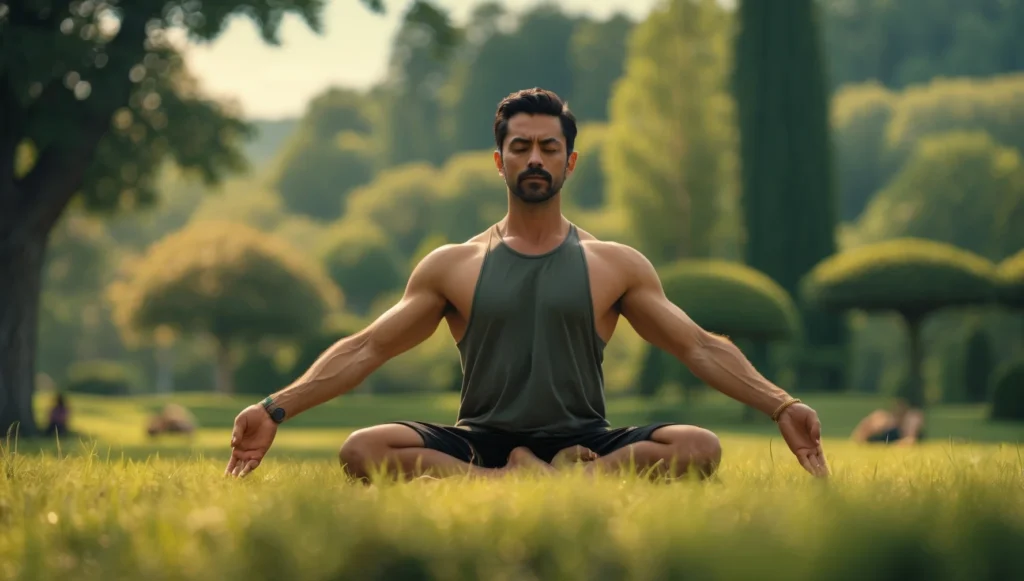Regular exercise is a cornerstone of healthy aging, especially for men over 50. as the body undergoes natural changes with age, staying active becomes even more critical to maintaining vitality, independence, and overall well-being. in this article, we’ll explore why exercise is so important after 50 and how it can transform your life.
What Happens to Your Body After 50?
As you age, your body experiences several physiological changes that can impact your health and quality of life. understanding these changes highlights the importance of staying active.
Natural Changes With Age
- Loss of Muscle Mass: After 50, men lose about 1-2% of muscle mass per year, a condition known as sarcopenia.
- Decreased Bone Density: Bones become weaker, increasing the risk of fractures and osteoporosis.
- Slower Metabolism: A slower metabolism can lead to weight gain if calorie intake isn’t adjusted.
- Reduced Flexibility and Balance: Joints stiffen, and balance declines, raising the risk of falls and injuries.
“aging is inevitable, but regular exercise can slow its effects and help you stay strong and independent.”
How Does Exercise Counteract Aging?
Exercise acts as a powerful tool to combat the negative effects of aging. it strengthens muscles, improves bone density, and enhances mobility, allowing you to maintain an active lifestyle.

The Physical Benefits of Regular Exercise
Exercise offers numerous physical benefits that are especially important for men over 50. here’s how staying active can improve your health.
Strengthens Muscles and Bones
Strength training exercises, such as lifting weights or using resistance bands, help preserve muscle mass and bone density. this reduces the risk of fractures and supports joint health.
Examples of Muscle-Building Exercises
- Squats and lunges for leg strength
- Push-ups and planks for upper body and core stability
- Resistance band exercises for flexibility and endurance
Improves Cardiovascular Health
Cardiovascular exercises, like walking, cycling, or swimming, strengthen the heart and lungs. they also lower blood pressure, reduce cholesterol levels, and decrease the risk of heart disease.
Tips for Cardio Workouts
- Start with low-impact activities like walking or swimming if you’re new to exercise.
- Gradually increase intensity by adding hills or intervals to your routine.
Enhances Flexibility and Balance
Balance and flexibility exercises, such as yoga or tai chi, improve coordination and reduce the risk of falls. they also promote relaxation and mental clarity.
Simple Balance Exercises
- Stand on one leg for 30 seconds, then switch sides.
- Practice heel-to-toe walking in a straight line.
The Mental and Emotional Benefits of Exercise
Exercise isn’t just good for your body—it’s also a powerful mood booster and stress reliever. here’s how staying active supports mental and emotional well-being.
Reduces Stress and Anxiety
Physical activity triggers the release of endorphins, the body’s natural “feel-good” chemicals. this helps reduce stress, anxiety, and symptoms of depression.
Boosts Cognitive Function
Studies show that regular exercise improves memory, focus, and problem-solving skills. it also lowers the risk of cognitive decline and dementia.
Activities That Stimulate the Brain
- Learning new dance routines or sports
- Practicing mindfulness during yoga or tai chi
- Engaging in outdoor activities that require focus, like hiking
Promotes Better Sleep
Exercise helps regulate your sleep cycle, making it easier to fall asleep and stay asleep. better sleep improves energy levels and overall mood.
Tips for Better Sleep Through Exercise
- Avoid vigorous workouts within 2-3 hours of bedtime.
- Incorporate relaxing activities like stretching or yoga in the evening.

How to Get Started with Exercise After 50
Starting an exercise routine doesn’t have to be overwhelming. here are some practical tips to help you ease into an active lifestyle.
Set Realistic Goals
Start small and focus on consistency rather than intensity. for example, aim to walk 10 minutes a day and gradually increase the duration.
Find Activities You Enjoy
Choose exercises that you genuinely enjoy, whether it’s cycling, swimming, or playing golf. this increases the likelihood of sticking with them long-term.
Stay Accountable
Exercising with a friend or joining a fitness class can keep you motivated and make workouts more enjoyable.
Frequently Asked Questions About Exercise After 50
Is It Safe to Exercise After 50?
Yes, exercise is safe and beneficial for most men over 50. however, it’s important to consult your doctor before starting a new program, especially if you have pre-existing health conditions.
How Often Should You Exercise?
The american heart association recommends at least 150 minutes of moderate-intensity aerobic activity or 75 minutes of vigorous activity per week, combined with strength training twice a week.
What If You Have Joint Pain?
Low-impact exercises like swimming, cycling, or yoga are gentle on the joints while still providing significant health benefits.



